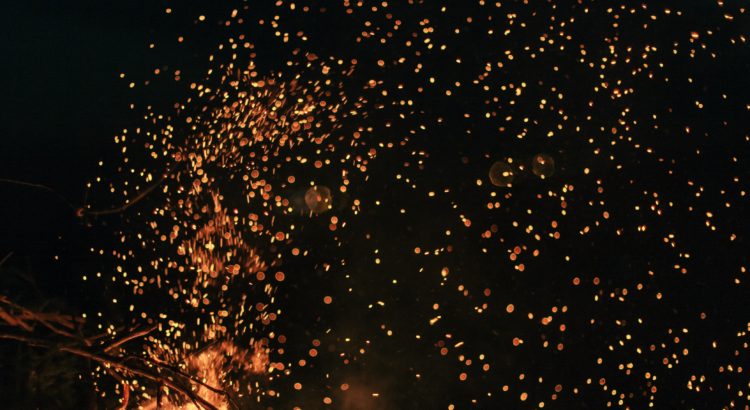
Tag: poem

The Host
Like the Statue of Liberty, the library called,
“Give me your tired, give me your weary”
A lighthouse, it gleamed in the distance.
It was a sanctuary,
Their sanctuary,
Home to chairs that were
Uncomfortable but they had stopped minding
Various Tupperware containers being opened
Different cuisines fusing into one,
At the same time.
It was a good fusion.
Studying, they tried, eventually, the subjects would
Merge into one, math and english and science,
And so many others, the majors were endless,
At this point, though, they were one and all the same.
They tried to force themselves awake,
Taking breaks, they
Watched the football on the television,
But they had watched a hundred games like this one,
And it had yet to become different.
Besides, their mind had entered a dream-like state,
Half-asleep, they ate their dinner.
It was impersonal, cooked by someone they didn’t know,
Not to say it wasn’t good,
Because it was,
But they missed home, a little bit.
Eventually, they couldn’t resist the pull of gravity,
They laid their heads on their books
And their eyes begin to flutter
Still, they tried to keep awake, realizing that they had been tricked
The library was courteous, a gentleman,
It tiptoed around them
Cast sparkling shadows from the sunset
Onto their faces,
And lulled them to sleep.

Rainbow Road
the rain comes on suddenly,
too sudden.
they are unprepared, their hoods from their hoodies
are all they have, their
umbrellas are forgotten at home, they are
unfamiliar with michigan weather,
where the saying goes
“if you don’t like the weather,
wait ten minutes.”
they realize this soon but
not soon enough.
the water that the drain rejected has seeped
into their converse, their nike air force ones, their checkered vans,
cleaning the once-white soles but
leaving them damp,
uncomfortable.
their solution for this is coffee
like it is for many of their problems,
cold, iced tea, contrasting with the weather,
whisked in their hands, flurrying away.
the sidewalks get their dose of cleaning, from
shoes that walk miles upon it every day,
the leaves lose their crunch, and instead
shine brightly on the pavement,
like walking on rainbow road
from mario kart.
a topic of conversation,
rain is.
all day long,
coats are thrown off, umbrellas shaken at doorsteps,
they say “it’s pouring out there!”
and they have this same conversation every time it rains,
their shoes always get wet,
they always get coffee,
they always walk on rainbow road,
they go through this every time it rains,
and yet their love for it
never wavers.

The Books of Hatcher Library
Walk the stacks of Hatcher,
all the history it contains
Up and down the hallways,
marvel at what remains
Centuries worth of books,
all sitting there in dust
Many of them never picked,
thankfully cannot rust
Their wordsmiths have come and gone,
the books as ever young
Their words sit upon these musty shelves,
their contents remain unsung
We talk and talk and hope one is listening,
to know that we exist
Like us, these books want to be heard,
it is our eyes that they have missed
Close your eyes and pick a book,
leave your texts unsent
The books are celebrating your arrival,
they appreciate the time spent
Read the book in an open field,
where flowers are so merry
Where the sun shines upon its spine,
where it isn’t a dark library
Walk the stacks of Hatcher
when you have some time to spare
The books yearn to be opened,
they wish to feel the sweet summer air

An Autumn in University
in a flurry,
before anyone notices,
the leaves begin to fall
crunch under the boots
perfect jumps to get them right under the sole,
for that satisfying crunch
sweaters in the morning that transform
into tees by mid-day
silent classrooms of students taking exams
papers flipping, pencil scratches being made,
teachers walking down the aisles,
the tension could be cut with a knife
waiting for the time to finish, and also to keep on going,
for that one problem that seems unsolvable
but is on the brink of the mind,
almost teetering on the exit
perhaps it will drip into the paper
perhaps not, either way
exams are forgotten as soon as they are handed in
can’t even remember a question a friend is asking about
in the midst of
going home and
apple cider and
donuts and
hayrides,
nothing matters when you’re happy and the
feeling of autumn
envelopes you in its embrace.
The Poem That’s Getting Me Through Midterms
In the heat of midterm season, I’m thinking about Elizabeth Bishop’s poem One Art. As I procrastinate and study and go to events and feel the pulse of life racing madly everyday, I think about how I can’t get yesterday back, or the day before that, or today will pass and so will tomorrow. The passage of time feels like a kind of destruction, a loss, a sacrifice that I must helplessly participate in. And Bishop’s poem encapsulates this anxiety so eloquently and ironically in a poem; she writes:
The art of losing isn’t hard to master;
so many things seem filled with the intent
to be lost that their loss is no disaster.
Lose something every day. Accept the fluster
of lost door keys, the hour badly spent.
The art of losing isn’t hard to master.
It sneaks up on you, and it seems very profound in the beginning– initially, I thought the poem what about the burdens of materialism, or the issues with attaching yourself to human or tangible things (“door keys”, your “mother’s watch”, “three loved houses”). However, the poem progressively becomes more obsessive, spiraling into a chaotic frenzy of losing everything, of owning and loving and finding meaning in nothing:
Then practice losing farther, losing faster:
places, and names, and where it was you meant
to travel. None of these will bring disaster.
I lost my mother’s watch. And look! my last, or
next-to-last, of three loved houses went.
The art of losing isn’t hard to master.
I lost two cities, lovely ones. And, vaster,
some realms I owned, two rivers, a continent.
I miss them, but it wasn’t a disaster.
To me, it becomes something of an existentialist plea for meaning– this author is saying, to some degree, whether she knows it or not, Nothing matters. And everything is fine, because nothing matters. And finally, she drops the huge bomb at us in the end, the absolute sarcastic remark that seems to be hiding a deep inner turmoil:
—Even losing you (the joking voice, a gesture
I love) I shan’t have lied. It’s evident
the art of losing’s not too hard to master
though it may look like (Write it!) like disaster.
But this last paragraph reveals her true feelings. Bishop cares about what happens.
The poet can’t really fully will herself to believe that nothing matters because if she did, she wouldn’t be feeling anything– but she does feel something. It doesn’t matter that she uses a “joking voice, a gesture” she loves, or that she painfully admonishes herself to “(Write it!)”– screw that! She cares about what happens, and even if everything in her life is lost, if everything and everyone that she loves is destroyed, she is silently, quietly counteracting that by creating this poem— something she can control. I cannot help but feel like there is particular double weight to the word “art” here– something that helps her lose and destroy, perhaps, but more importantly, helps her create.
In the midst of academic frenzy and the crazy on-goings of everyday life, I’m sometimes forced to forfeit and run on autopilot– wake up, do the stuff, scrabble to bed to get my seven hours, and repeat. But I care about what happens, I put love and passion into the work that I do, and that’s what matters.
This poem is a shout into the void, as all poems are, but beautiful– a declaration that I was here. I existed. And I matter. And perhaps that’s something we need to remember this time of year.
(Read Bishop’s incredible poem here: https://www.poetryfoundation.org/poems/47536/one-art)


